Schema and AI Overviews: Does structured data improve visibility?
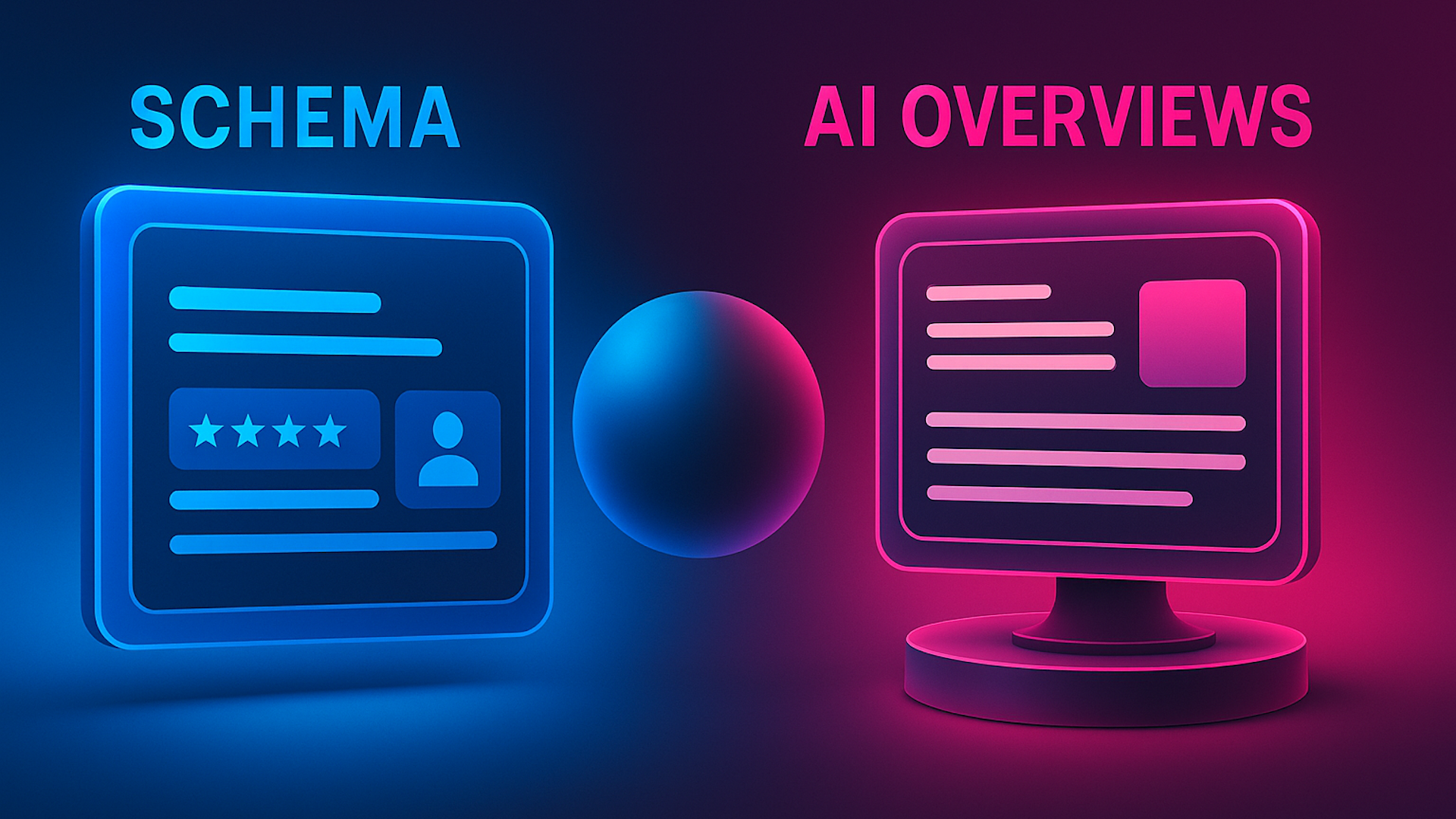
A controlled test compared three nearly identical pages: one with strong schema, one with poor schema, and one with none.
Only the page with well-implemented schema appeared in an AI Overview and achieved the best organic ranking.
The results suggest that schema quality – not just its presence – may play a role in AI Overview visibility.
Schema, AI Overviews, and the need for proof
AI Overview visibility is becoming increasingly important to businesses.
One debate within the SEO community has stood out: Does adding schema improve the chances of being cited in an AI Overview?
Schema was created to make webpages more machine-readable, and it has even been shown to help large language models – like Microsoft’s – better interpret content freshness.
That makes it tempting to assume schema is a best practice for AI visibility.
Still, AI Overviews are the result of complex and layered processes.
It’s difficult to draw firm conclusions from logic alone or from limited glimpses into one part of a model’s behavior.
That uncertainty is what motivated us to run a controlled experiment.
- In earlier work, Molly analyzed 100 healthcare sites and found a slight correlation between schema use and AI Overview visibility. But the correlation was not statistically significant, and the analysis had two limitations: it didn’t assess the quality of the schema, and because it wasn’t an experiment, site differences in content, structure, and audience couldn’t be controlled.
- At the same time, Benjamin’s experiments showed that ChatGPT retrieved information more thoroughly and accurately from pages with structured data. Those findings pointed to schema’s role in AI visibility, but they didn’t address Google’s AI Overviews.
With those perspectives in mind, we decided to collaborate on a test that would build on Molly’s earlier analysis and extend Benjamin’s experiments into Google Search – focusing directly on whether schema quality plays a role in AI Overview visibility.
Dig deeper: AI visibility: An execution problem in the making
The setup: Three sites, three schema approaches
We built three single-page sites to compare schema directly:
- One with well-implemented schema.
- One with poorly implemented schema.
- One with none.
Aside from schema, the pages were kept as similar as possible, with keywords chosen to match in difficulty and search volume.
After publishing, we submitted all three for indexing to see whether they would rank – and, more importantly, whether any would appear in an AI Overview.
Get the newsletter search marketers rely on.
See terms.
The result: Only the page with well-implemented schema appeared in an AI Overview
The page with well-implemented schema was the only one to appear in an AI Overview.
It also ranked for six keywords in traditional search, reaching as high as Position 3.
Rank 3 was the highest conventional search rank achieved by any page in our experiment, and it was also the query that triggered the AI Overview appearance.
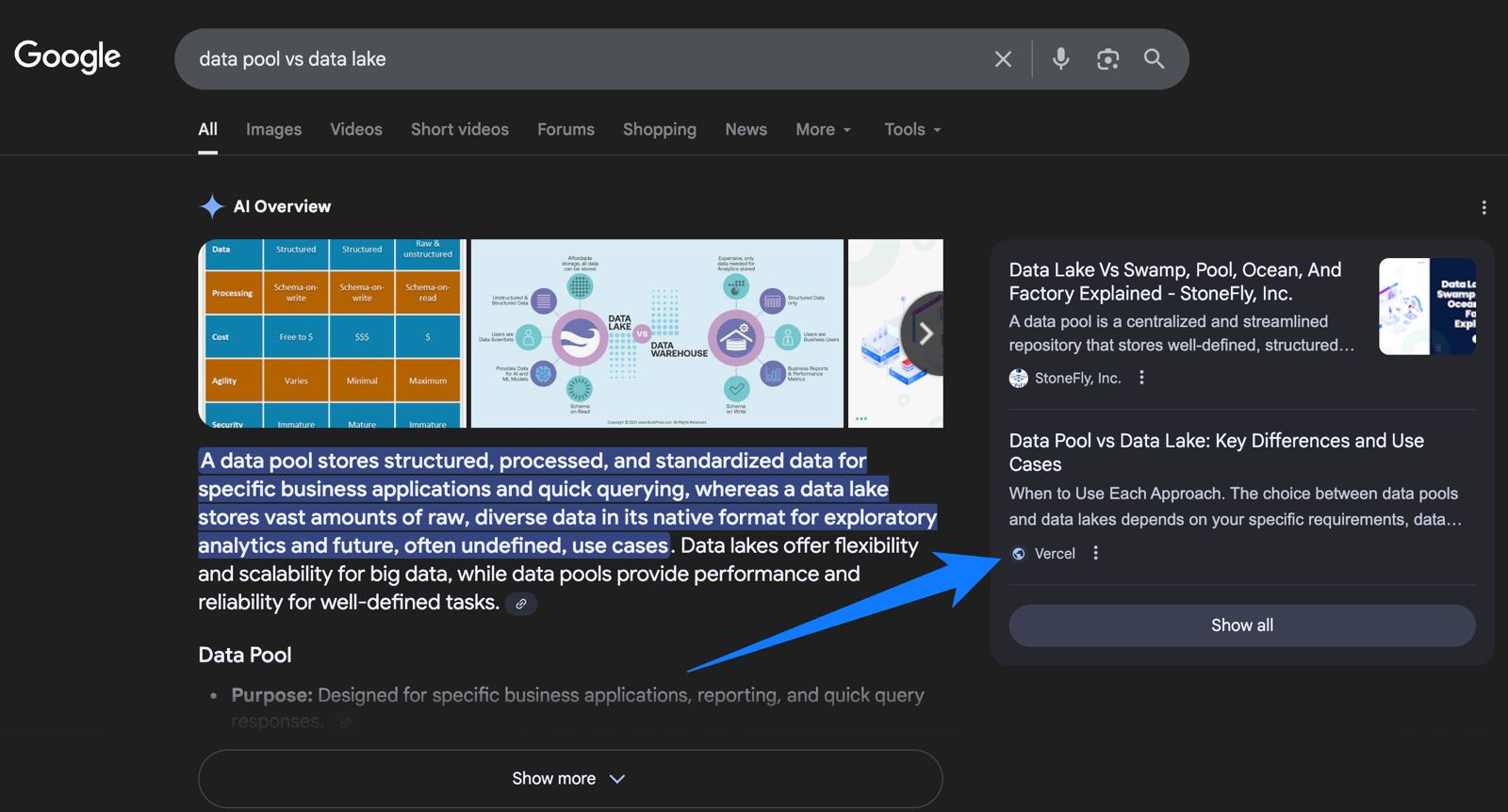
The page with poorly implemented schema ranked for 10 keywords and peaked at Position 8, but none of its queries surfaced in an AI Overview.
The page with no schema was crawled by Google within minutes of the others, but was not indexed.
Without indexing, it didn’t rank for any keywords and could not appear in AI Overviews.
Methodology: How we controlled for variables and defined ‘good schema’
To isolate schema as the variable, we kept everything else about the test pages as consistent as possible – from keyword choice to site setup.
Keyword selection
We used Ahrefs to choose three keywords with identical metrics. Each returned an AI Overview at the time of selection:
- “How much does a marketing team cost.”
- “What are common elements in the promotional mix.”
- “Data pool vs. data lake.”
Metrics (Ahrefs)
- Keyword difficulty: 3
- Monthly search volume: 60
- Traffic potential: 20
We also chose keywords that were qualitatively similar and within the same general industry (marketing/martech).
Site build controls
All three were single-page sites deployed on Vercel, with the following constraints applied consistently:
- No JavaScript.
- No custom domain name or homepage.
- No sitemap.
- No robots.txt file.
- No canonical tags.
Schema treatments
To create a page that exemplified a solid implementation of schema best practices, we included:
- Complete
Articleschema with all required fields. FAQschema for common questions.- Breadcrumb navigation schema.
- Proper date formatting.
- Author and publisher information.
- Educational level and audience targeting.
- Related topics and mentions.
- Word count and reading time.
We deliberately introduced errors into the poor schema page, including:
- Incomplete
Articleschema (missing required fields). - No
FAQschema despite having FAQ-like content. - Missing breadcrumb navigation schema.
- Incorrect date format.
- Missing essential properties.
The third site was built without any schema at all.
All three sites were submitted to Google on Aug. 29 and crawled the same night.
Interpreting the results: Promising, but inconclusive
We don’t consider these results to be absolute proof that well-implemented schema plays a role in AI Overview presence.
However, the story is clear: the page with well-implemented schema was the winner in our small, carefully controlled test. It achieved the best organic rank and was the only page to appear in an AI Overview.
We don’t see any obvious alternative explanation for why this happened, either.
The “no schema” page had the lowest word count of the three pages, but word count shouldn’t matter.
What’s next
There’s still more to do.
Unseen variables could have muddied the waters, and there’s always the possibility that our results were simply a coin-flip-style fluke of the Google algorithm.
As a follow-up, we plan to de-index the pages, create new pages with identical content, and then swap the schema.
We want to see if putting schema on the “no schema” page gets it indexed and ranked. That would be a very compelling result indeed.
Appendix
For those who want to review the test materials directly, here are the URLs of the sites and supporting documentation:
Test pages
- https://marketing-team-cost-no-schema.vercel.app/
- https://promotional-mix-poor-schema.vercel.app/
- https://data-pool-vs-data-lake-great-schema.vercel.app/
Code repositories
- https://github.com/BenUsername/marketing-team-cost-no-schema
- https://github.com/BenUsername/promotional-mix-poor-schema
- https://github.com/BenUsername/data-pool-vs-data-lake-great-schema
Google Search Console screenshots
The following screenshots show indexing and enhancement status:
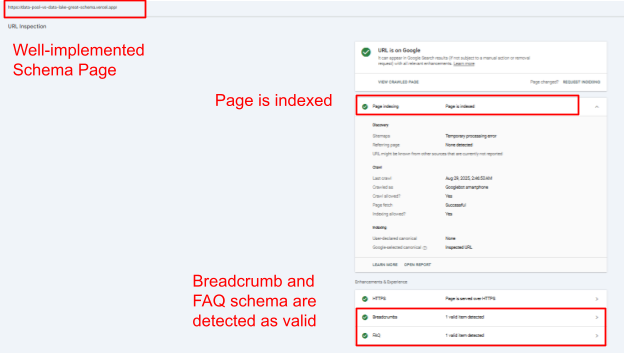
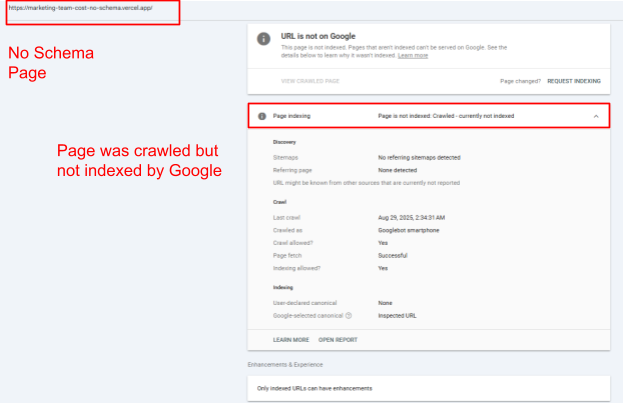
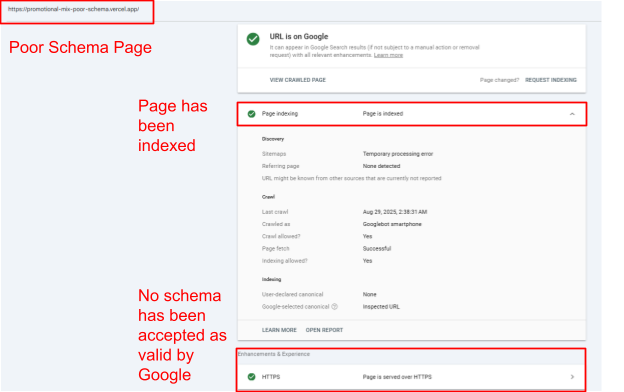


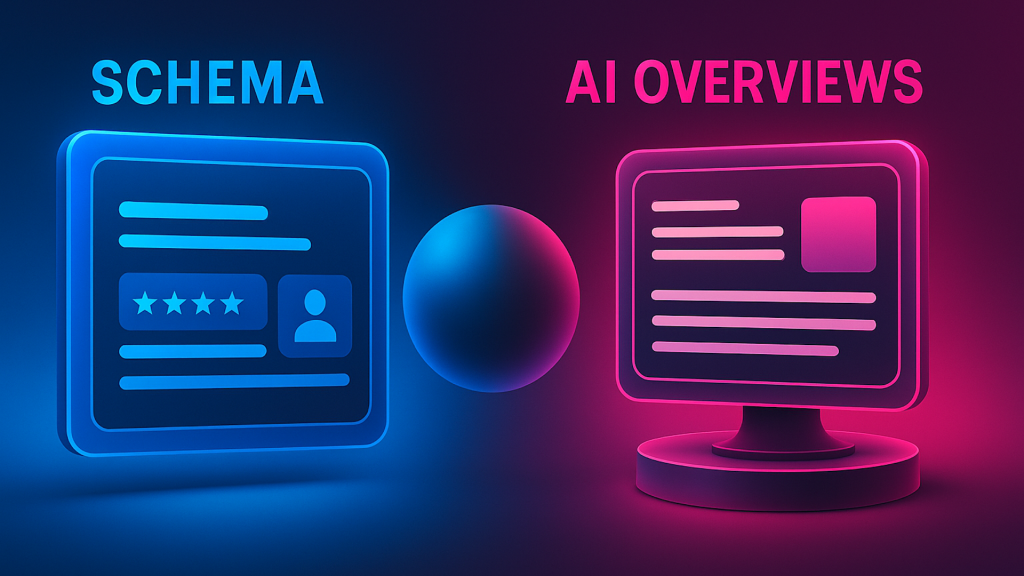




Recent Comments